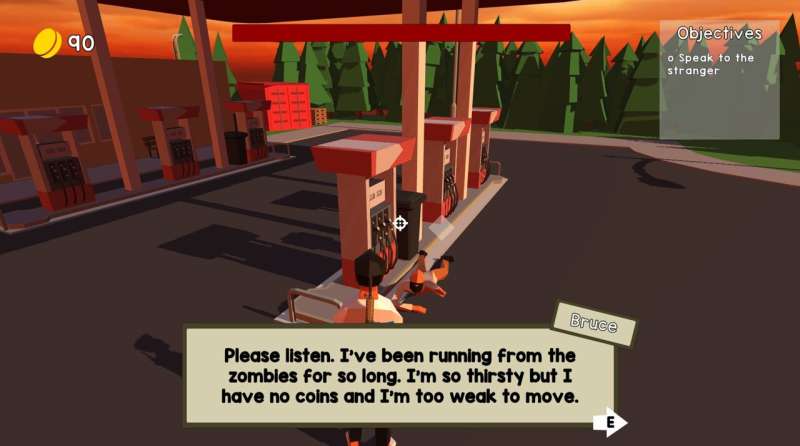This article has been reviewed according to Science X's editorial process and policies. Editors have highlighted the following attributes while ensuring the content's credibility:
fact-checked
trusted source
proofread
Video game rewards study reveals gamer good Samaritans

Gamers who chose to be good Samaritans while playing through a zombie apocalypse were more likely to be prosocial post-game, according to new QUT research.
The aim of the research was to determine the impact in-game rewards for helping have on post-game prosocial behavior.
The study, published in the International Journal of Human-Computer Studies, focused on better understanding the potential benefits the design of games can have on people.
To do this, researchers from QUT's Schools of Computer Science and Psychology and Counseling designed and developed a video game similar to a short action adventure genre game.
Players take on the role of a human survivor in a post-apocalyptic world, competing for fuel and shelter while fending off zombies.
The researchers created a down-on-his-luck character named Bruce who was thirsty and desperately needed help and required players to decide whether to use coins they earned during the game to buy him a bottle of water.
Bruce was designed to give the player an opportunity to be prosocial or not and the experiment varied whether gamers were rewarded for helping.
Ph.D. computer science researcher Blake Kammermann alongside Dr. Stephanie Tobin, Associate Professor Selen Turkay, and Professor Daniel Johnson examined results from almost 200 study participants from across the world.
"Games are a powerful medium for change, so much so that they spawned an entire industry around gamification and serious games that help motivate and educate people to improve themselves," Kammermann said.
The results of the gaming experiment revealed 55 participants aided Bruce knowing there was no reward for their help while 59 were surprised with a reward and 61 helped knowing they were promised a reward.
"We found the players who were generous to Bruce were more likely to make a small act of kindness," he said.
"Our findings support that being prosocial toward video game characters, regardless of if you're rewarded for it not, is associated with an increased likelihood that people continue to help others after the gameplay … in this case by donating to a charity."
He said there was also a lack of research into how rewards impact prosocial behavior in game-adjacent fields such as persuasive technology or mixed reality.
"We want to continue investigating other aspects of videogame design that may bolster this effect."
More information: Blake Kammermann et al, Do videogame rewards influence players' subsequent prosocial engagement? A preregistered partial replication study on the role of reward and reasoning, International Journal of Human-Computer Studies (2023). DOI: 10.1016/j.ijhcs.2023.103143
Provided by Queensland University of Technology




















